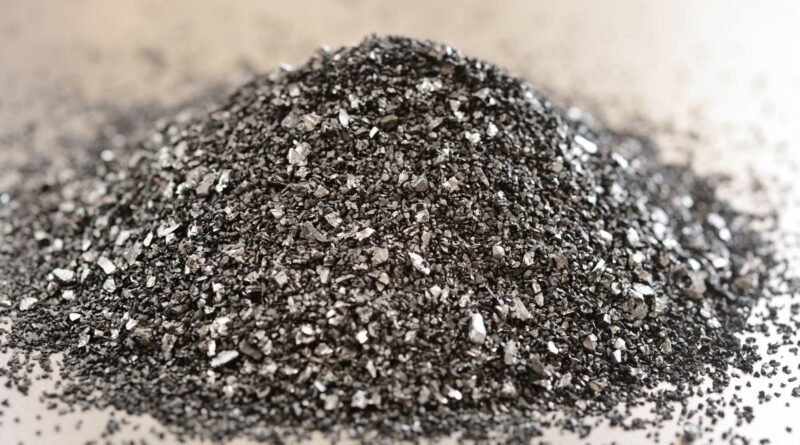Do activated charcoal interact with medications?
Activated charcoal is a fine, black powder that works very well to absorb chemicals, which is why it is used so often. to treat poisons. Some people use activated charcoal to try to reduce gas and bloating, prevent hangovers, or “cleanse” the digestive system – although there are limited scientific evidence to support these claims. And because of its ability to turn food and drinks black, charcoal is also a popular food coloring agent, especially during Halloween.
However, what most people don’t realize is that used coal it can interfere with certain medications by reducing the amount of that drug that enters the bloodstream, reducing its effectiveness.
But how does activated charcoal interact with medicine?
The main mechanism of this interaction is adsorption, Lingtak-Neander Chanprofessor of chemistry at the University of Washington, told Live Science in an email. Adsorption is the process by which molecules adhere to the surface of a substance. Because of its unique porous structure, activated carbon has a large surface area that makes it very effective at adsorbing – or trapping – drug molecules on its surface.
Related: How does grapefruit interact with drugs?
“This works like a fishing net,” Chan said, because the activated charcoal traps drug molecules in the intestines.
When a drug is ingested – for example, in pill or liquid form – it must pass through the lining of the intestine in order to enter the bloodstream. From there, it produces its effects on the body. But if activated charcoal is present in the digestive system, the drug molecules stay in the intestines and are eventually excreted, along with the activated charcoal.
In some cases, the consequences of this interaction can be serious. A report published in a newspaper The Lancet described a case in which activated charcoal interfered with antiplatelet medications; platelets are the blood component responsible for to cheat. This complication made the drug ineffective in a patient suffering from heart disease.
In one case, it was written in a newspaper Antiviral TherapyActivated charcoal interferes with antiviral drugs, which are used to treat it HIV. This lowered the amount of drugs in the blood, which led to the flow of viral load – the number of virus particles in the body. Ideally, antiretrovirals lower the amount of HIV in the body until it is invisible. The patient also began to refuse his medication because these very weak drugs helped the virus to survive, adapt and continue to reproduce.
According to me medical resource StatPearlsActivated charcoal prevents the absorption of many types of drugs, including common painkillers, sedatives and antidepressants. The larger the drug molecule, the more likely it is to be trapped by the activated carbon, Chan noted. Some hormone-based drugs, including birth control pills, can be taken with activated charcoal for this reason.
On the other hand, drugs with strong ionic charges – meaning they have very positive or very negative electrical charges – will not bind well to charcoal. These include medicines such as lithiumused to treat bipolar disorder, and oral iron supplements. These substances are better absorbed when the activated charcoal is in the intestine.
Related: How does arsenic kill?
Not all drugs within the same class are equally affected by activated charcoal.
“This is because the adsorption effect depends on the physical properties and size of the drug molecules,” Chan explained. For example, one blood pressure medication may respond to activated charcoal, while another from the same class may not. So it is difficult to make generalizations about possible drug interactions.
Time is important to avoid interactions between activated charcoal and drugs. The effect of adsorption is strongest when drugs and charcoal are absorbed within an hour, Chan said. In the emergency department, it’s often used if a patient is suspected of poisoning less than an hour or two before being admitted, he said.
Another thing to consider is the amount of activated charcoal. In cases where it is used to treat poisoning, the usual dose is 1 gram per kilogram of body weight, according to Chan. This ensures greater penetration of the poison that has been eaten. The amount of activated carbon found in common household products, such as toothpaste and food, is relatively small – “well below 1g/kg in most cases,” he said. That makes it less likely to interfere with medication.
People using charcoal for purposes other than detoxification – such as purging the colon or detoxification – should be careful about how much charcoal they take and how often they should be taken. “Be careful when they take the medicine,” Chan advised. Contact your healthcare provider if you are taking activated charcoal with medications.
This article is for informational purposes only and is not intended to provide medical advice.
Always ask yourself why some people build muscle more easily than others or why spots appear in the sun? Send us your questions about how the human body works community@livescience.com with the subject “Health Desk Q,” and you can see your question answered on the website!
#activated #charcoal #interact #medications
